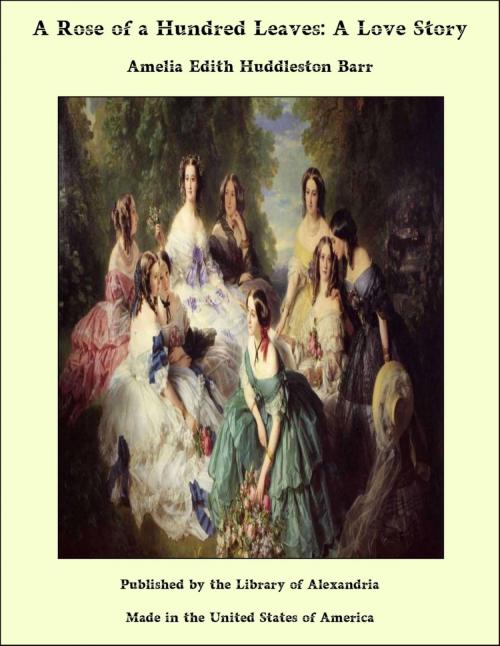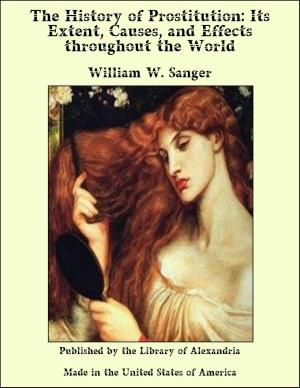A Rose of a Hundred Leaves: A Love Story
Nonfiction, Religion & Spirituality, New Age, History, Fiction & Literature| Author: | Amelia Edith Huddleston Barr | ISBN: | 9781465615602 |
| Publisher: | Library of Alexandria | Publication: | March 8, 2015 |
| Imprint: | Language: | English |
| Author: | Amelia Edith Huddleston Barr |
| ISBN: | 9781465615602 |
| Publisher: | Library of Alexandria |
| Publication: | March 8, 2015 |
| Imprint: | |
| Language: | English |
Aspatria was born at Seat-Ambar, an old house in Allerdale. It had Skiddaw to shelter it on the northwest; and it looked boldly out across the Solway, and into that sequestered valley in Furness known as “the Vale of the Deadly Nightshade.” The plant still grew there abundantly, and the villagers still kept the knowledge of its medical value taught them by the old monks of Furness. For these curious, patient herbalists had discovered the blessing hidden in the fair, poisonous amaryllis, long before modern physicians called it “belladonna.” The plant, with all its lovely relations, had settled in the garden at Seat-Ambar. Aspatria’s mother had loved them all: the girl could still remember her thin white hands clasping the golden jonquils in her coffin. This memory was in her heart, as she hastened through the lonely place one evening in spring. It ought to have been a pleasant spot, for it was full of snowdrops and daffodils, and many sweet old-fashioned shrubs and flowers; but it was a stormy night, and the blossoms were plashed and downcast, and all the birds in hiding from the fierce wind and driving rain. She was glad to get out of the gray, wet, shivery atmosphere, and to come into the large hall, ruddy and glowing with fire and candle-light. Her brothers William and Brune sat at the table. Will was counting money; it stood in small gold and silver pillars before him. Brune was making fishing-flies. Both looked up at her entrance; they did not think words necessary for such a little maid. Yet both loved her; she was their only sister, and both gave her the respect to which she was entitled as co-heir with them of the Ambar estate. She was just sixteen, and not yet beautiful. She was too young for beauty. Her form was not developed; she would probably gain two or three inches in height; and her face, though exquisitely modelled, wanted the refining which comes either from a multitude of complex emotions or is given at once by some great heart-sorrow. Yet she had fascination for those capable of feeling her charm. Her large brown eyes had their childlike clearness; they looked every one in the face with its security of good-will. Her mouth was a tempting mouth; the lips had not lost their bow-shape; they were red and pouting, but withal ever ready to part. She might have been born with a smile. Her hair, soft and dark, had that rarest quality of soft hair,—a tendency to make itself into little curls and tendrils and stray down the white throat and over the white brow; yet it was carefully parted and confined in two long braids, tied at the ends with a black ribbon.
Aspatria was born at Seat-Ambar, an old house in Allerdale. It had Skiddaw to shelter it on the northwest; and it looked boldly out across the Solway, and into that sequestered valley in Furness known as “the Vale of the Deadly Nightshade.” The plant still grew there abundantly, and the villagers still kept the knowledge of its medical value taught them by the old monks of Furness. For these curious, patient herbalists had discovered the blessing hidden in the fair, poisonous amaryllis, long before modern physicians called it “belladonna.” The plant, with all its lovely relations, had settled in the garden at Seat-Ambar. Aspatria’s mother had loved them all: the girl could still remember her thin white hands clasping the golden jonquils in her coffin. This memory was in her heart, as she hastened through the lonely place one evening in spring. It ought to have been a pleasant spot, for it was full of snowdrops and daffodils, and many sweet old-fashioned shrubs and flowers; but it was a stormy night, and the blossoms were plashed and downcast, and all the birds in hiding from the fierce wind and driving rain. She was glad to get out of the gray, wet, shivery atmosphere, and to come into the large hall, ruddy and glowing with fire and candle-light. Her brothers William and Brune sat at the table. Will was counting money; it stood in small gold and silver pillars before him. Brune was making fishing-flies. Both looked up at her entrance; they did not think words necessary for such a little maid. Yet both loved her; she was their only sister, and both gave her the respect to which she was entitled as co-heir with them of the Ambar estate. She was just sixteen, and not yet beautiful. She was too young for beauty. Her form was not developed; she would probably gain two or three inches in height; and her face, though exquisitely modelled, wanted the refining which comes either from a multitude of complex emotions or is given at once by some great heart-sorrow. Yet she had fascination for those capable of feeling her charm. Her large brown eyes had their childlike clearness; they looked every one in the face with its security of good-will. Her mouth was a tempting mouth; the lips had not lost their bow-shape; they were red and pouting, but withal ever ready to part. She might have been born with a smile. Her hair, soft and dark, had that rarest quality of soft hair,—a tendency to make itself into little curls and tendrils and stray down the white throat and over the white brow; yet it was carefully parted and confined in two long braids, tied at the ends with a black ribbon.















